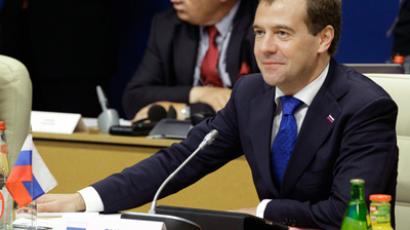Border Alert: Nuke war risk rising, Russia warns
The danger of local armed conflicts along Russia's borders exploding into full-scale nuclear war has grown following the collapse of the Soviet Union, Russia’s chief of staff said on Thursday.
General Nikolai Makarov told the Russian Public Chamber there is a dangerous level of mistrust with former Soviet states that border the country."The possibility of local armed conflicts virtually along the entire perimeter of the border has grown dramatically," Makarov said. “I cannot rule out that, in certain circumstances, local and regional armed conflicts could grow into a large-scale war, possibly even with nuclear weapons.”Makarov mentioned NATO’s steady encroachment toward Russia’s borders as one of the key reasons for the heightened level of mistrust in the region since the collapse of the Soviet Union in 1991."Almost all countries formerly belonging to the Warsaw Pact have become NATO members, and the Baltic States that were earlier a part of the USSR have also joined the alliance,” Russia’s top military official said.Moscow has often criticized the western military bloc for going back on its word not to expand following the collapse of the USSR."At time of the withdrawal from Eastern Europe, the NATO Secretary General promised the USSR it could be confident that NATO would not expand beyond its current boundaries," Prime Minister Vladimir Putin said in a past comment. "So where is it now?” I asked them [the NATO officials]. They have nothing to say. They deceived us in the rudest way.”Meanwhile, the comments by Chief of Staff Makarov did contain a silver lining in the nuclear cloud.Speaking on the prospects of the New START treaty, signed by President Dmitry Medvedev and his US counterpart Barack Obama, Makarov was optimistic."The previous START treaty was flawed, but there were attempts to extend it,” he said. “The new START is the first treaty that satisfies us.”On the US missile defense system planned for Eastern Europe, the Russian general said the new START gives Moscow the flexibility its new defense measures require.“This treaty gives us the ability to secede in certain cases,” he said, specifically mentioning the “European missile defense problem” as a national security threat that could force Moscow to breach the treaty.Robert Bridge, RT














